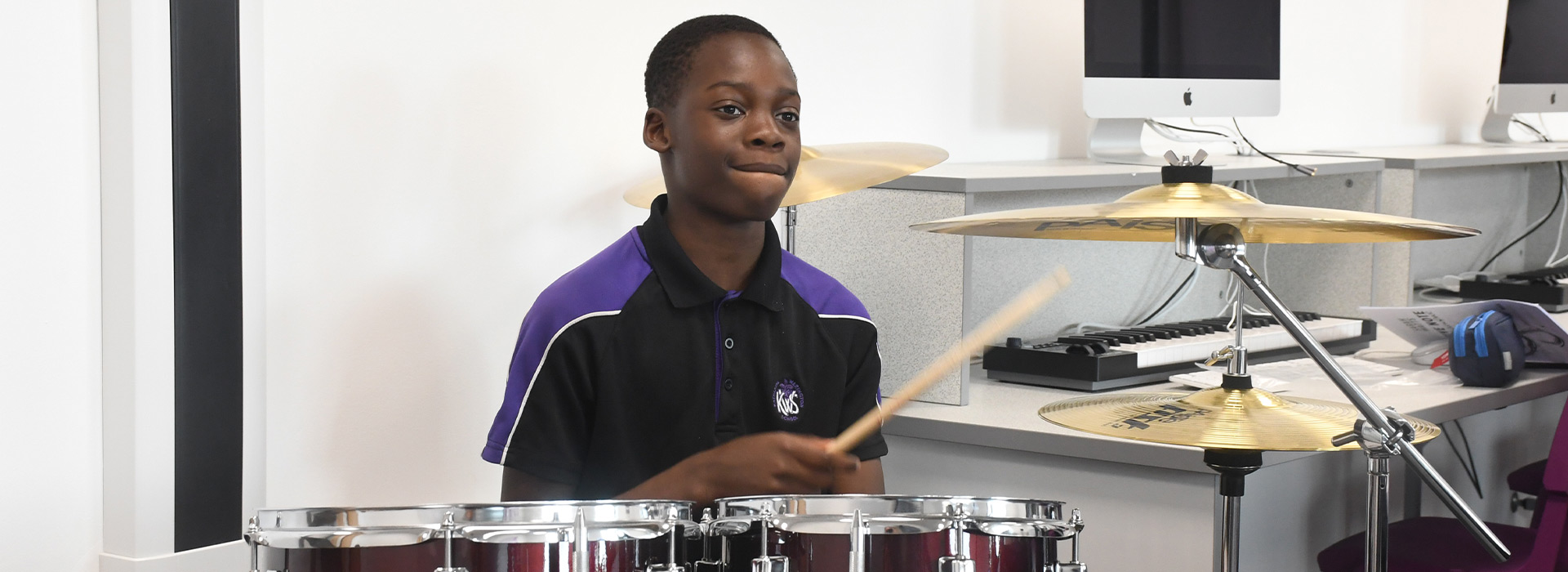Music
GCSE Music aims to develop performing, composing and appraising skills. It will encourage you to broaden your musical experience, develop imagination and foster creativity. Studies include music from across a diverse range of styles and genres, including the use of music technology.
The course helps students to develop as effective independent learners with enquiring minds. It also provides an expressive outlet which can enhance self-esteem and well-being. Music links well with other subjects and pathways for the future.
What is the exam board and specification?
Eduqas GCSE Music: https://www.eduqas.co.uk/qualifications/music-gcse/#tab_overview
A student summary: eduqas-gcse-summary-for-students.docx
What will you study?
Lessons are split between practical sessions (composition/performance), and the four Areas of Study (listening/analysis). There will be opportunities to perform in class ensembles, as well as to use the Apple Macs to create music on Garageband, Sibelius and/or Musescore. The four Areas of Study are as follows:
AoS 1 – Musical Forms and Devices (Baroque, Classical & Romantic music)
AoS 2 – Music for Ensemble (chamber music, musical theatre, jazz and blues)
AoS 3 – Film Music
AoS 4 – Popular Music (pop, rock, bhangra and fusion)
How will you be assessed?
The following assessments take place in the final year of the course (Year 11):
30% Performing – Non-exam assessment; internally recorded and assessed, externally moderated. Minimum of two pieces (total 4-6 minutes); usually one solo and one as part of an ensemble, either vocal or instrumental. Note: recordings take place in the final year of the course at which stage the recommended standard should be equivalent to Grade 3.
30% Composing – Non-exam assessment; internally assessed, externally moderated. Two compositions (total 3-6 minutes), one free and one in response to a brief given by Eduqas.
40% Appraising – Written exam; 75 minutes, with questions on the different areas of study.
What qualities do I need to be successful in the subject?
Students need an enquiring mind and a willingness to throw themselves into all aspects of the course; composing their own music, committing to reaching at least Grade 3 performance standard on their instrument or voice by the end of the course, and engaging with a diverse heritage of music. You need to love music!
What future opportunities can I have with this subject?
Music links well with many other subjects and builds skills such as analysis, collaboration, problem-solving, confidence, imagination, communication, resilience, and the use of technology. It also helps with positive well-being and mental health. Specific career paths include music producer, music therapist, sound engineer, technician, special effects technician, composer, conductor and teacher.
Who should I contact for further information?
Mr Bullock: j.bullock@kwschool.co.uk

